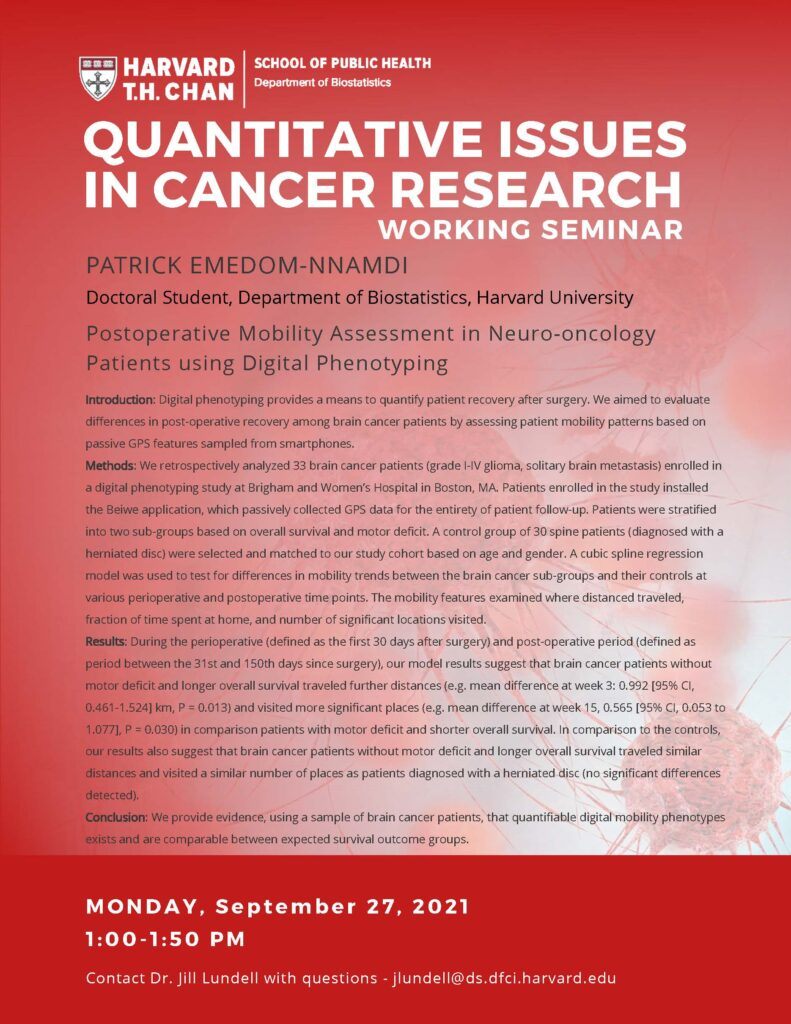
- This event has passed.
Quantitative Issues in Cancer Research Working Seminar
September 27, 2021 @ 1:00 pm - 1:50 pm

Patrick Emedom-Nnamdi
Doctoral Student, Department of Biostatistics, Harvard University
“Postoperative Mobility Assessment in Neuro-oncology Patients using Digital Phenotyping”
ABSTRACT: Introduction: Digital phenotyping provides a means to quantify patient recovery after surgery. We aimed to evaluate differences in post-operative recovery among brain cancer patients by assessing patient mobility patterns based on passive GPS features sampled from smartphones.
Methods: We retrospectively analyzed 33 brain cancer patients (grade I-IV glioma, solitary brain metastasis) enrolled in a digital phenotyping study at Brigham and Women’s Hospital in Boston, MA. Patients enrolled in the study installed the Beiwe application, which passively collected GPS data for the entirety of patient follow-up. Patients were stratified into two sub-groups based on overall survival and motor deficit. A control group of 30 spine patients (diagnosed with a herniated disc) were selected and matched to our study cohort based on age and gender. A cubic spline regression model was used to test for differences in mobility trends between the brain cancer sub-groups and their controls at various perioperative and postoperative time points. The mobility features examined where distanced traveled, fraction of time spent at home, and number of significant locations visited.
Results: During the perioperative (defined as the first 30 days after surgery) and post-operative period (defined as period between the 31st and 150th days since surgery), our model results suggest that brain cancer patients without motor deficit and longer overall survival traveled further distances (e.g. mean difference at week 3: 0.992 [95% CI, 0.461-1.524] km, P = 0.013) and visited more significant places (e.g. mean difference at week 15, 0.565 [95% CI, 0.053 to 1.077], P = 0.030) in comparison patients with motor deficit and shorter overall survival. In comparison to the controls, our results also suggest that brain cancer patients without motor deficit and longer overall survival traveled similar distances and visited a similar number of places as patients diagnosed with a herniated disc (no significant differences detected).
Conclusion: We provide evidence, using a sample of brain cancer patients, that quantifiable digital mobility phenotypes exists and are comparable between expected survival outcome groups.



